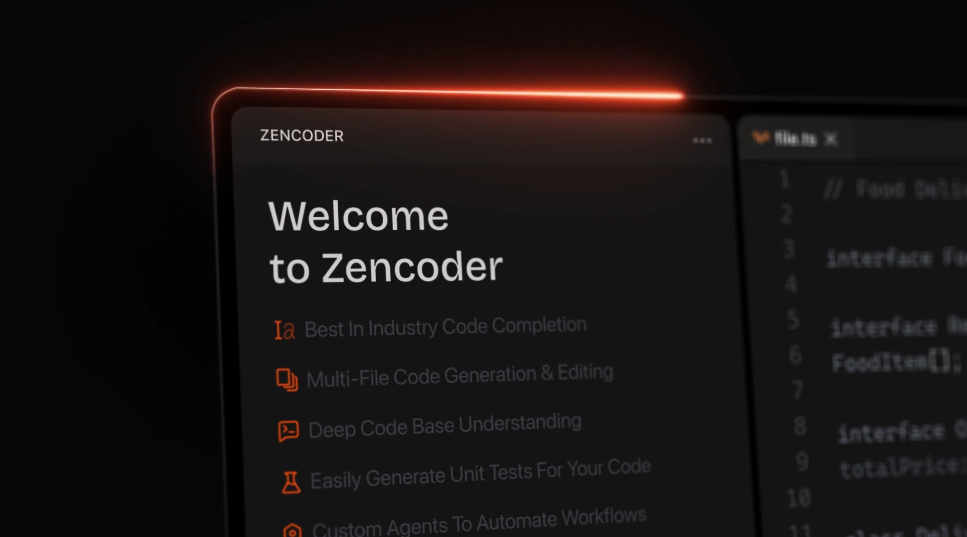 AI
AI
 AI
AI
 AI
AI
Generative artificial intelligence coding startup Zencoder says it’s finally able to help developer teams shift from “vibe coding” to production-ready applications with its latest tool, which automates the verification process for newly generated code.
Announced today and available in beta test now, Zentester is an AI-powered agent that can quickly validate any piece of code, including those that were created with the aid of generative tools. It’s designed to verify newly written lines of code the moment it’s created, directly within the developer’s workflow.
It’s the latest addition to Zencoder’s arsenal of AI coding agents. The company already offers a legion of coding assistants for tasks such as code generation, repair, test generation, optimization and documentation, and last month debuted a platform for developers to create their own, highly customized AI coding tools.
Now it’s going further, bringing AI-generated software tests into the development pipeline with Zentester. As the startup explains, AI coding bots have created a significant gap between actually writing code and the ability of teams to ship out reliable software. The code creation process has been accelerated dramatically, but testing is still a slow and laborious process. To close this gap, Zentester enables end-to-end testing and faster feedback loops to provide instant verification that software actually works as it’s supposed to.
Zencoder said that traditional software engineering involves the developer building a new feature and sending it to quality assurance, with feedback returned anywhere from a few hours to a few days later. By the time that feedback arrives, the developer has already moved onto the next feature, and if a fix or alteration is required, that means stopping what they were working on and going back to perform the needed fix. Once done, the fixed code needs to go back to Q&A to be tested again, and if it’s still not working correctly, it’ll go back to the developer again.
It’s a lot of context switching, and developers can quickly find themselves overwhelmed, with simple fixes stretching into weeks-long ordeals. To put an end to this back-and-forth, Zentester looks at newly written applications from the same perspective as human users do. So its verification process will involve clicking on buttons, completing forms and navigating through various menus and features, looking to validate both the user interface and the backend responses.
Developers can “talk” to Zentester in plain language, so they can ask it to “complete the checkout with the saved payment method,” and it will go ahead and verify if that process works or not. That eliminates the need for complex scripts which are traditionally used in testing.
In addition, Zentester slots into both the development and engineering workflows. As a result, developers can use it as they’re writing code in order to catch any issues immediately, and engineers can focus on creating more comprehensive tests to fully validate every possible scenario.
It can even be employed by Zencoder’s AI agents, enabling them to self-verify the code they create. When they do this, they’ll remember the mistakes they made, so it also helps them to improve their coding skills over time.
Additionally, Zentester can also help to fix existing software tests that may “break” as the application evolves, as a result of compatibility issues. In this case, it simply adapts the test in line with the changes made to the underlying code.
Early adopters have verified that Zentester’s automated verification really does help. According to Zencoder, teams with early access have reported a 30% improvement in first-time pass rates for verified AI commits, leading to a significant acceleration in developer velocity.
Zencoder founder and Chief Executive Andrew Filev said verification is the “missing link” that’s required to scale AI-powered software development. “Zentester doesn’t just generate tests, it gives developers the confidence to ship by validating that their AI-generated or human-written code does what it’s supposed to do,” he promised.
Support our mission to keep content open and free by engaging with theCUBE community. Join theCUBE’s Alumni Trust Network, where technology leaders connect, share intelligence and create opportunities.
Founded by tech visionaries John Furrier and Dave Vellante, SiliconANGLE Media has built a dynamic ecosystem of industry-leading digital media brands that reach 15+ million elite tech professionals. Our new proprietary theCUBE AI Video Cloud is breaking ground in audience interaction, leveraging theCUBEai.com neural network to help technology companies make data-driven decisions and stay at the forefront of industry conversations.